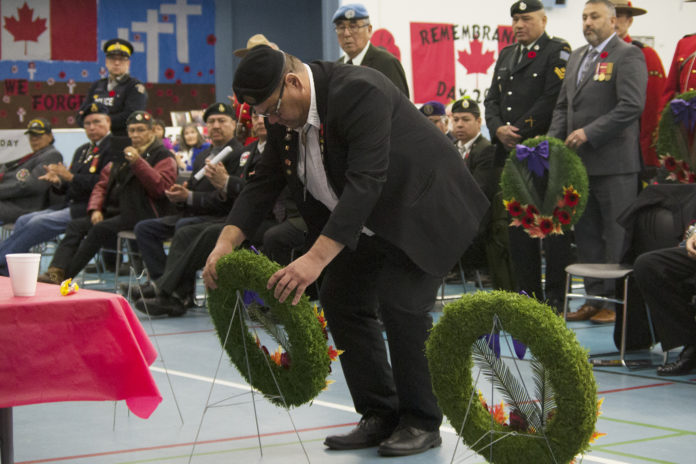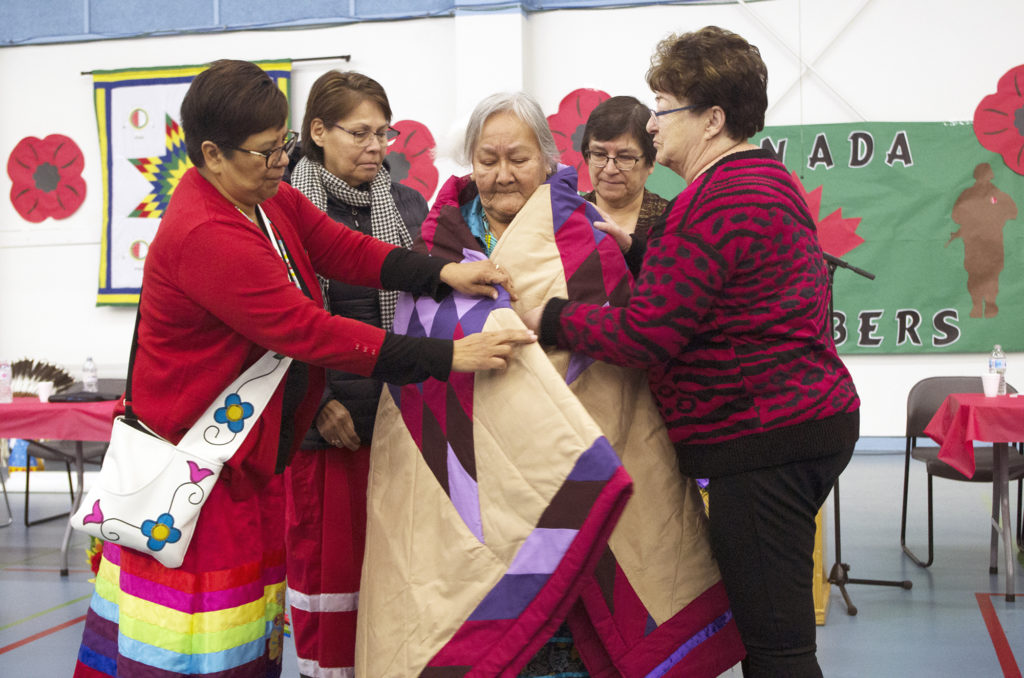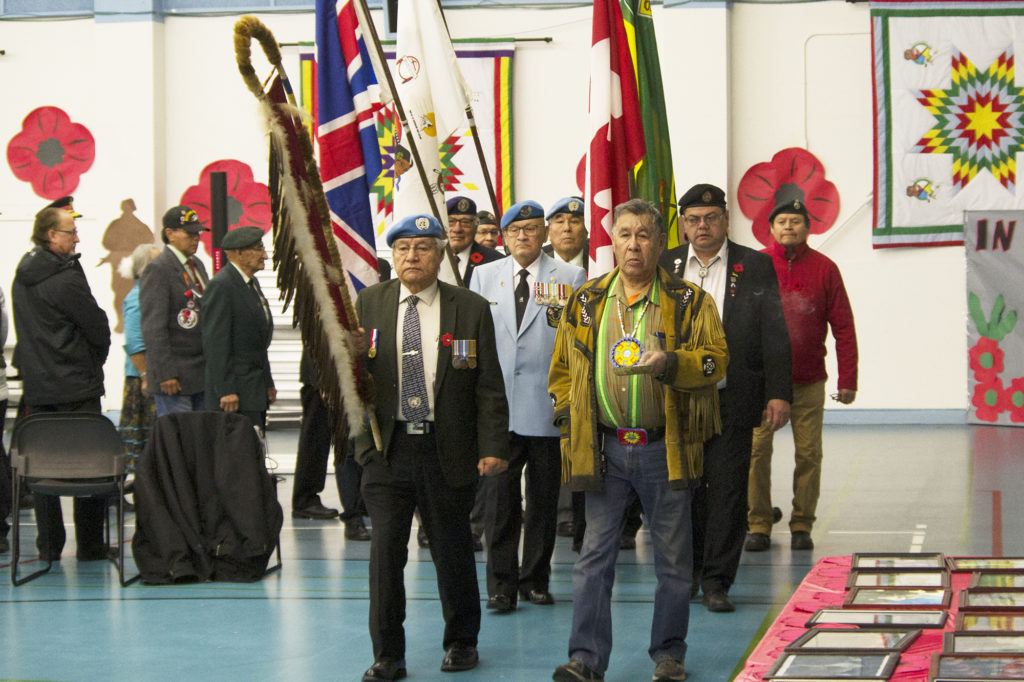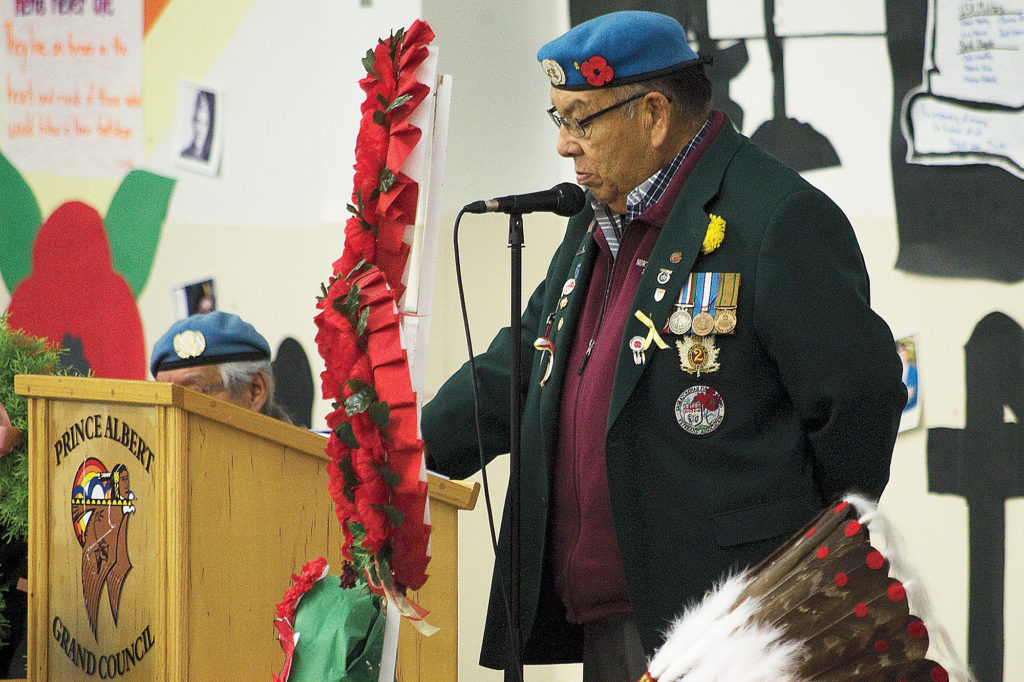
Right from the beginning, Eliza Bird’s father made sure she knew about Remembrance Day.
Bird recalled many loud, active and carefree days as a young girl, but with one exception, which came every year on Nov. 11.
“My dad was very traditional,” she remembered. “On Remembrance Day we were supposed to be quiet (and) be respectful. You know when you’re little and you scream? That was not for that day. That was a day for being quiet. You had to respect those people who went to war for us. This is the day we need to remember them.”
Bird had little trouble remembering Remembrance Day as an adult, and not just because of her father’s efforts. When she met her future husband Azarie, he was a fresh-faced recruit with the Princess Patricia’s Light Infantry. Azarie served nine years in total, many of them stationed overseas.
“It was the end of the (Korean) War,” she said. “He enlisted about that time, and right away they were sent to Germany, just in case there was war again.”
Veterans like her husband were at the forefront of Bird’s mind on Saturday, when she was named the 2019 Silver Cross Mother during the Prince Albert Grand Council Remembrance Day Ceremony. Canadian veterans were willing to risk their lives to keep Canada free, she says, and it’s vital to honour that willingness every November.

“That is one way of saying we acknowledge these veterans,” she explained. “We acknowledge the ones who went to war. We acknowledge the ones who are still living, and I really believe that it’s a good way.”
Those sentiments were repeated early and often as dozens of veterans, dignitaries, cadets and families filed into the Allan Bird Memorial Centre for Saturday’s ceremony. Speaker after speaker spoke about the bravery each veteran showed by signing up for service. They were also quick to point out that Indigenous people went to war, even though the treaties said they didn’t have to.
Veterans Affairs Canada estimates that as many as 12,000 First Nations, Métis and Inuit people served in Korea and the two world wars. At least 500 of them lost their lives.
“They’re resilient, and I’m proud to stand here today and honour them,” PAGC vice-chief Chris Jobb said.
“Thank them almost every day, because when we get up every day, our children, our grandchildren, and our great-grandchildren live a life of peace,”
“Our veterans area major component of everything we do,” FSIN Chief Bobby Cameron added. “So we want to say to our veterans in a respectful way, ‘we love each and every one of you.’”
Indigenous veterans didn’t always feel that love and support when they left the armed forces. After the First World War, many Indigenous veterans returned home to find out they would not receive benefits due to Indian Act restrictions, the first of many problems Indigenous veterans would encounter. In 2003, the federal government offered a compensation package and an apology for its past treatment of First Nations veterans.

“They’re starting to realize now how the public perceives them, and it’s a good perception,” Saskatchewan First Nations Veterans Association Grand Chief Steven Ross said. “People are starting to understand the role our First Nations played in World War One, Two and the Korean Wars.”
Ross delivered the Remembrance Day message on Saturday. In it, he urged attendees to not only recognized the service of veterans in attendance, but the ultimate sacrifice many Canadian soldiers made at such a young age.
“I’m really glad that they had the courage,” said Ross, who served as a peacekeeper in Cyprus in 1967. “They were so brave. They were so young, and it’s sad to see that some of them did not make it back, but they fought for our freedom. They fought for us.”
The Nov. 11 Remembrance Day Ceremony will be held at the Prince Albert Armouries. Attendees are asked to be in their seats by 10:30 a.m.
Gone by not forgotten

The PAGC Remembrance Day ceremony went smoothly this year, but it did so without a familiar face.
Phillip Ledoux, a former peacekeeper who served with the Queen’s Own Rifles of Canada in Lebanon and Cyprus during the 1960s, was one of the annual event’s most enthusiastic organizers and participants. Sadly, he passed away in Saskatoon on Oct. 23, less than three weeks before Remembrance Day.
Fellow organizer Sheryl Kimbley couldn’t help tearing up when talking about Ledoux during Saturday’s ceremony. She said she was honoured to work with him, and fortunate to know him.
Ledoux would traditionally read off the names of every Indigenous veteran who died during the past year as part of the Honour Roll Reading. Fellow veterans said he’ll be missed.
“Phillip was one of the executive members, and he was an advanced thinker,” Ross said. “He was always planning in advance on things that we need to do, events we need to work on, and he knew a lot of people. He knew the politicians within the federation. He was a chief for two terms in his own reserve at Mistawasis, so he was quite aware of politics and achievements, and he was always a good person to be with—friendly and kind.”

